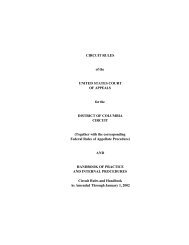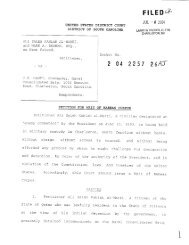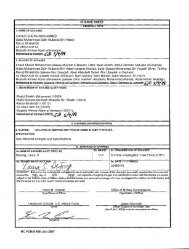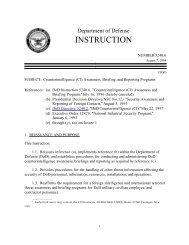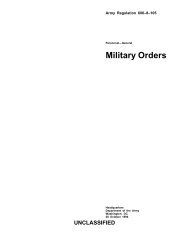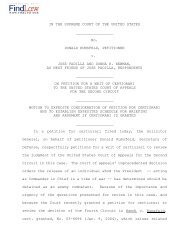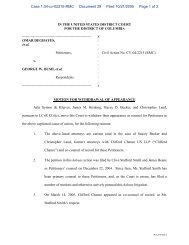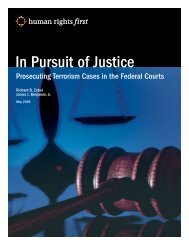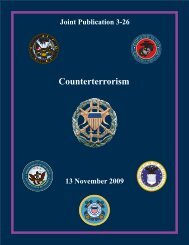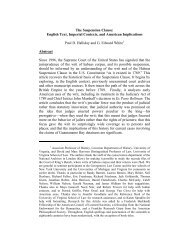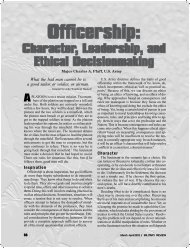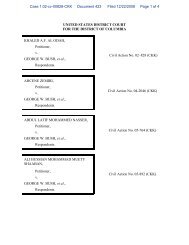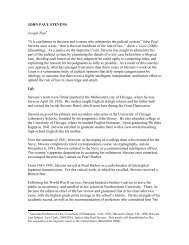Government Merits Brief - Hamdan v. Rumsfeld
Government Merits Brief - Hamdan v. Rumsfeld
Government Merits Brief - Hamdan v. Rumsfeld
You also want an ePaper? Increase the reach of your titles
YUMPU automatically turns print PDFs into web optimized ePapers that Google loves.
35<br />
ever, create no enforceable federal rights. See, e.g., Yang v.<br />
California Dep’t of Soc. Servs., 183 F.3d 953, 958-961 (9th Cir.<br />
1999); Monahan v. Dorchester Counseling Ctr., Inc., 961 F.2d<br />
987, 994-995 (1st Cir. 1992). Moreover, the policy statement<br />
at issue simply reaffirms the acknowledged obligations of the<br />
United States under the Geneva Convention; it says nothing<br />
about the availability of a cause of action for individuals in the<br />
domestic courts in the event there is a violation of those obligations.<br />
See NDAA § 1091(b)(4), 118 Stat. 2069.<br />
Petitioner next relies (Br. 38 n.29) on Army regulations<br />
concerning the implementation of the Geneva Convention by<br />
Army personnel. By their own terms, however, those regulations<br />
do not extend any substantive rights; instead, they<br />
merely establish internal policies. See, e.g., U.S. Dep’t of the<br />
Army et al., Regulation 190-8, Enemy Prisoners of War, Retained<br />
Personnel, Civilian Internees and Other Detainees<br />
para. 1-1(a) (Nov. 1, 1997) (Army Regulation 190-8). And, of<br />
course, it would be quite remarkable to construe an Army<br />
regulation to create rights for enemy combatants that can be<br />
enforced in civilian courts. In any event, the CSRT determined<br />
that petitioner is a combatant, thus resolving the only<br />
“POW” claim petitioner raised below. As the court of appeals<br />
noted, moreover, petitioner may advance his POW claim at<br />
trial before the military commission. Pet. App. 16a.<br />
Petitioner asserts (Br. 38-40) that his Geneva Convention<br />
claim is enforceable through 10 U.S.C. 821, which recognizes<br />
the jurisdiction of military commissions over “offenders or<br />
offenses that by statute or by the law of war may be tried by<br />
military commissions.” That provision, however, was originally<br />
included in the Articles of War in 1916; it therefore<br />
could not “implement” or “execute” a treaty that was ratified<br />
only in 1956. Moreover, as we have explained, that provision<br />
by its terms provides authority, rather than restricting it. It<br />
was not intended to limit the President’s authority to use mili-



